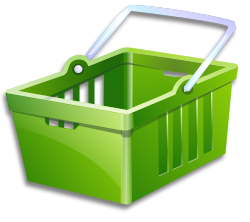Shelfcheck, on-shelf availability optimizer announced

Last Wednesday, at the Strategies Logistique Event in Paris, we announced a new upcoming product named Shelfcheck. This product targets retailers and it will help them to improve on-shelf availability, a major issue for nearly all retail segments.
In short, through an advance demand forecasting technology such as the one of Lokad, it becomes possible to accurately detect divergence between real-time sales and anticipated demand. If the observed sales for a given product drop to a level that is very improbable considering anticipated demand, then an alert can be issued to store staff for early corrective actions.
On-shelf availability has been challenging the software industry for decades, yet, as far we can observe, there is no solution even close of being satisfying available on the market at present day. For us, it represents a tough challenge that we are willing to tackle. We believe on-shelf availability is the sort of problem that is basically near-impossible to solve without cloud computing; at least near-impossible within reasonable costs for the retailer. Shelfcheck will be deployed on Windows Azure, a cloud computing platform that proves extremely satisfying for retail, as illustrated by the feedback we routinely get for Salescast.
A retail pain in the neck
Have you ever experienced frustration in a supermarket when facing a shelf where the product you were looking for was missing? Unless, you’ve been living under a rock, we seriously bet you face this situation more than once.
Recent studies (*) have shown that, on average, about 10% of the products offered in store are unavailable. Worse, the situation seems to have slightly degraded over the last couple of years.
(*) See materials published on ECR France.
In practice, there are many factors that cause on-shelf unavailability:
- Product is not at the right place and customers can’t find it.
- Product has been stolen and incorrect electronic inventory level prevents reordering.
- Packaging is damaged and customers put product back after having a close look.
- …
Whenever a product is missing from a shelf, sales are lost, as studies have shown that clients go for a direct ersatz only 1/3 of the time. Then it generates client frustration too which turns into loss of loyalty. Missing products are putting an incentive on your clients to check if competitors are better.
With about 10% on-shelf unavailability, a back-of-the-envelope calculation indicates the losses for the retail industry amount for a rough 100 billion USD per year world-wide. Disclaimer: that’s only an order of magnitude, not a precise estimate. Then, this estimate does not factor industry-wide cannibalizations, aka lost sales aren’t always lost for everyone.
You can’t improve what don’t measure

On-shelf availability is especially painful because detecting the occurrence of the problem is so hard in the first place:
- Direct shelf control is extremely labor intensive.
- RFID remains too expensive for most retail segments.
- Rule-based alerts are too inaccurate to be of practical use.
Thus, the primary goal of Shelfcheck is to deliver a technology that let retailers detect out-of-shelf (OOS) issues early on. Shelfcheck is based on an indirect measurement method: instead of trying to assess the physical state of the shelf itself, it looks at the consequences of an OOS within real-time sales. If sales for a given product drop to a level that is considered as extremely improbable, then the product is very likely to suffer an OOS issue, and an alert is issued.
By offering a reliable OOS metering system, Shelfcheck will help retailers to improve their on-shelf availability levels, a problem that proved to be extremely elusive to quantitative methods so far.
Store staff frustration vs. client frustration
The core technological challenge behind Shelfcheck is the quality of OOS alerts. Indeed, it’s relatively easy to design a software that will keep pouring truckload of OOS alerts, but the time of the store staff is precious (expensive too), and they simply can’t waste their energy chasing false-positive alerts, that is to say “phantom problems” advertized by the software, but having no real counterparts within the store.
Delivering accurate OOS, finely prioritized and mindful of the store geography (*) is the number one goal for Shelfcheck. Considering the amount of data involved when dealing with transaction data at the point of sale level, we believe that cloud computing is an obvious fit for the job. Fortunately, the Lokad team happens to be somewhat experienced in this area.
(*) Store employees certainly don’t want ending-up running to the other side of the hypermarket in order to check for the next OOS problem.
Product vision
The retail software industry is crippled by consultingware where multi-millions dollars solutions are sold and do not live up to expectations. We, at Lokad, do not share this vision. Shelfcheck will be following the vision behind Salescast, our safety stock optimizer.
Shelfcheck will be:
- Plug & Play, with simple documented ways of feeding sales data into Shelfcheck.
- Dead simple, no training required as Lokad manages all the OOS detection logic.
- Robotized, no human intervention required to keep the solution up and running.
- SaaS & cloud hosted, fitting any retailers from the family shop up to the largest retail networks.
The pricing will come as a monthly subscription. It will be strictly on demand, metered by the amount of data to be processed. We haven’t taken any final decision on that matter, but we are shooting for something in the range of $100 per month per store. Cost will probably be lower for minimarkets and higher for hypermarkets. In any case, our goal is to make Shelfcheck vastly affordable.
Feature-wise, Shelfcheck is pre-alpha stage, hence, the actual feature set of the v1.0 is still heavily subject to change. Yet, here is the overview:
- Real time OOS alerts available through web and mobile access.
- Real time prioritization based on confidence in the alerts and financial impact of the OOS issues.
- OOS dashboard feeding the management with key on-shelf performance indicators.
1 year free usage for early adopters
We are extremely excited by the sheer potential of this new technology. We are looking for volunteers to beta-test Shelfcheck. Lokad will offer:
- Until Shelfcheck is released, early adopters will be provided with unlimited free access.
- Upon release, early adopters will get 1 year of further free usage, within a limit of 10 points of sale.
In exchange, we will kindly ask for feedback, first about the best way for Lokad to acquire your sales data, and second about the usage of Shelfcheck itself.
Naturally, this feedback will drive our development efforts, bringing Shelfcheck closer to your specific needs. Want to grab the opportunity? Just mail us at contact@lokad.com.


